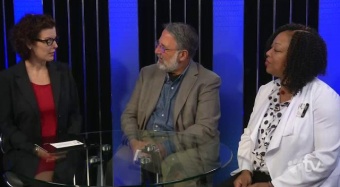Who Was Wade Foster?
Transcript available upon request
Wade Foster was 13 when he helped to build a university he could never attend. His children could never attend. His grandchildren could never attend. Foster was a criminal; a black boy caught stealing six dollars worth of clothes from a white family. Sentenced to six months in prison, South Carolina gave Foster to Clemson University to serve his sentence as convict labor. South Carolina called convict labor “slaves of the state.”
Rhondda Thomas, associate professor of African American Literature at Clemson, sheds light on the slaves who labored to build the institution and why it’s necessary to paint the full picture of a school’s history.
Thomas joined the university in 2007 and teaches African American literature in the English department. She is the author of “Exodus: A Cultural History of Afro-Atlantic Identity, 1774-1903 and the editor of Jane Edna Hunter’s autobiography, “A Nickel and a Prayer.” In 2013, she co-edited “The South Carolina Roots of African American Thought” with Clemson professor of English Susanna Ashton.
Last year she received a grant for her research about African Americans who lived and labored on Clemson land during the pre-1963 integration period. James E. Bostic Jr. and Edith H. Bostic of Atlanta awarded Thomas $50,000. That gift was matched by the university, bringing the total grant to $100,000.





